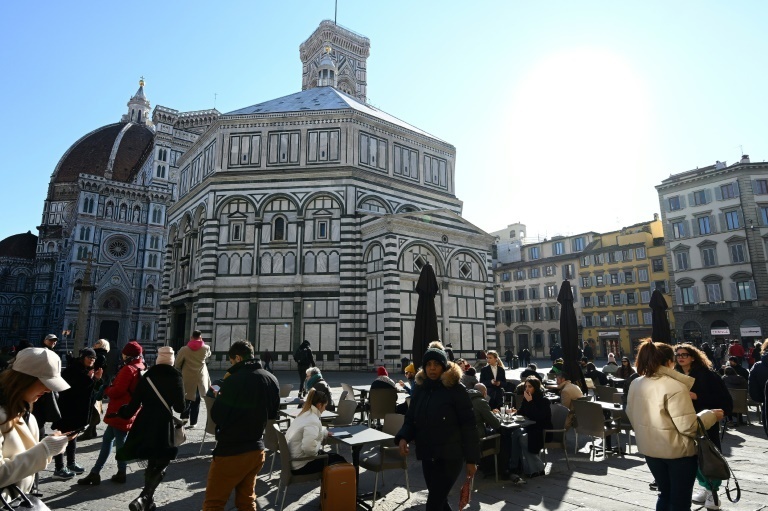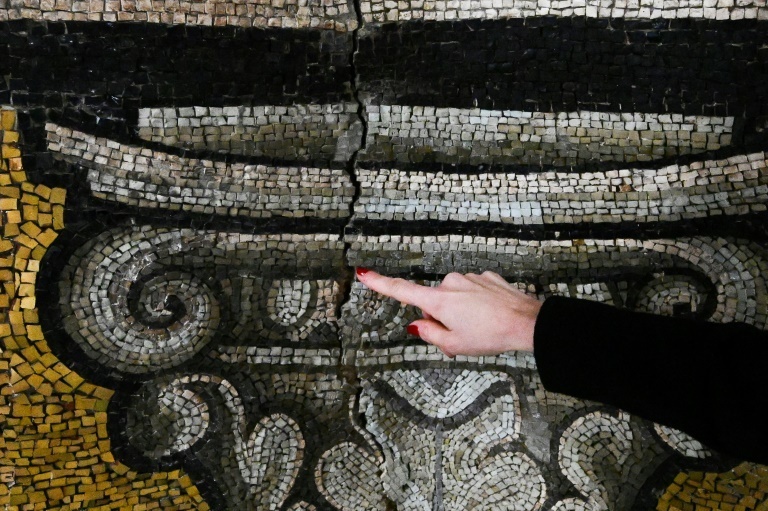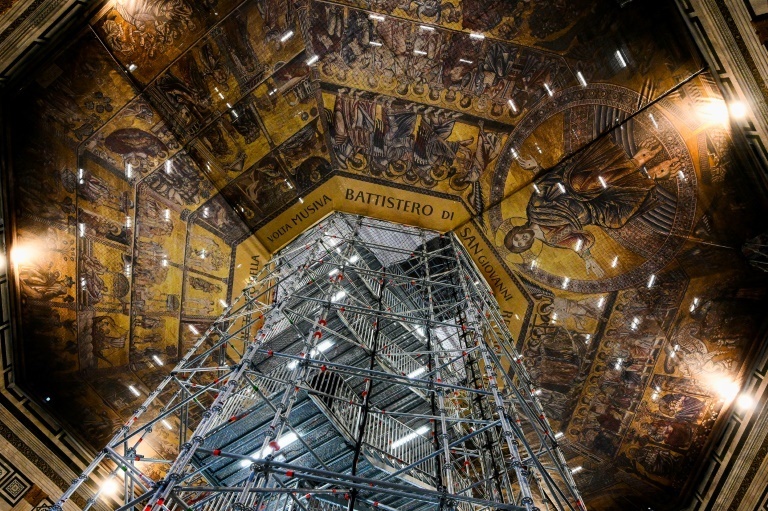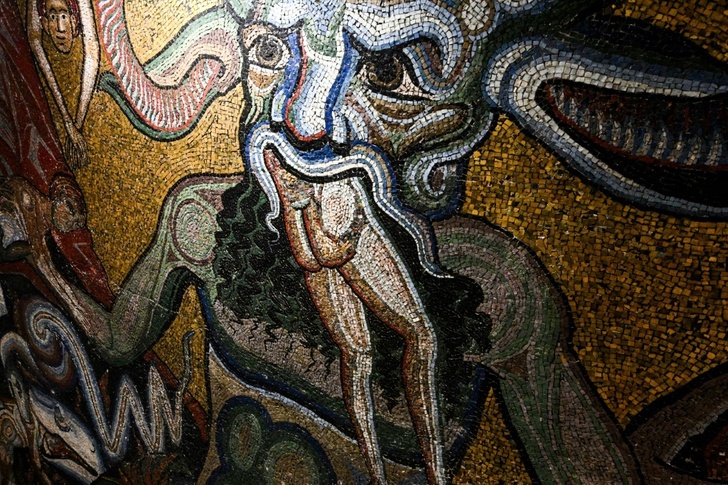Restorers launched a ground-breaking project in Florence's historic Baptistery Wednesday, allowing visitors a unique view of magnificent mosaics, including a three-headed devil which inspired Italian poet Dante.
For the next six years, tourists will be able to climb a specially-engineered, mushroom-shaped scaffold to examine up close over 1,000 square metres of richly-coloured and gold biblical depictions in the dome.
The cycle of medieval mosaics, made with an estimated 10 million tesserae measuring between five to 20 millimetres each, were designed by three generations of artists, including Cimabue, believed to be the painter Giotto's teacher.
"It will be the first -- and I hope last -- time that the public will be able to see these mosaics up close, because it will mean this restoration was a success," architect and project manager Samuele Caciagli told AFP.
The ceiling of the octagonal Baptistery, which sits opposite the Duomo in Florence's historic centre and which has hosted baptisms, including that of Dante Alighieri in 1266, was last restored over a century ago.
But now "there are cracks in every segment (of the dome) and a series of depressions... as well as detachments from the surface," Beatrice Agostini, who oversees the restoration team, told AFP.
- Rain, quakes, flood -
Florence's Opera di Santa Maria del Fiore organisation has been carrying out a 10-million-euro restoration of the whole building since 2014, with the white and green marble interior walls finished last year.

The solution was a "mushroom", a central tower leading up to a 630-square-metre aluminium structure split over eight levels and hidden from the ground by a fabric "false ceiling".
From February 24, visitors to the platform, which sits over 30 metres (98 feet) up, will climb to stand face to face with Christ, cherubs, virgins, monks and monsters.

The mosaics have suffered from rainwater infiltration, and have also been damaged by earthquakes and the flood that devastated the city in 1966.
- 'Secrets' -
Restorers from the Archaeological Conservation Center, which specialises in mosaics, began on Wednesday the mammoth task of mapping the tiny tesserae one by one, gently brushing away dust as they are photographed.
They will use ultrasound, georadar and thermal imaging tools, as well as pacometers, tools which will find pins and brackets used to prevent detaching mosaics from falling off during the last restoration in 1898 to 1907.
They will then reattach tesserae that are coming away and suture any cracks before "cleaning them to remove surface dirt that obscures the mosaic and its natural brilliance", Agostini said.
The restoration of the mosaics are expected to cost over 4.5 million euros ($4.8 million).

Many believe it was initially a Roman temple dedicated to the god Mars. Construction of the building in its present form was finished in 1128 and in 1225 work began to entirely cover the dome with mosaic tiles.
It would take about 70 years to finish the eight segments.
Now, the restorers' mapping and exploration of the vivid world above "may reveal more of the little secrets this extremely enigmatic baptistery hides", Agostini said.
ide/ar/yad
© Agence France-Presse
Your content is great. However, if any of the content contained herein violates any rights of yours, including those of copyright, please contact us immediately by e-mail at media[@]kissrpr.com.
Source: Story.KISSPR.com

